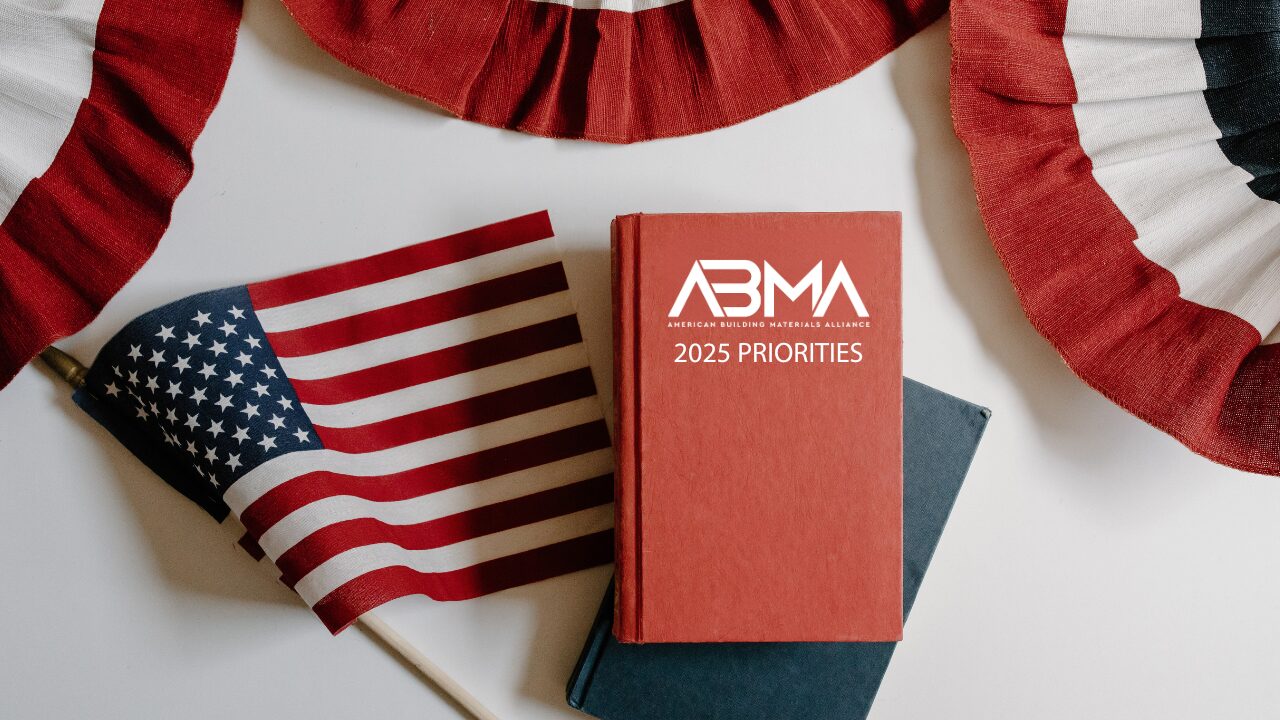The American Building Materials Alliance (ABMA) is focused on advocating for policies that support the Lumber and Building Materials (LBM) industry in 2025. Our agenda prioritizes legislative, regulatory, and economic challenges that impact small and family-owned businesses, ensuring they remain competitive while contributing to housing affordability and workforce growth. Issues on this year’s agenda include:
Main Street Tax Package
ABMA is pushing for tax policies that benefit LBM businesses, including:
- Bonus Depreciation & Immediate Expensing (H.R. 7024): Allowing businesses to deduct capital investments immediately, promoting reinvestment in equipment and infrastructure.
- Sec. 199A Deduction for Pass-Through Businesses: Ensuring small businesses maintain their 20% tax deduction to stay competitive against big-box retailers.
- Estate Tax Reform & Preservation of Stepped-Up Basis: Protecting family-owned businesses from excessive capital gains taxes that could force them to sell rather than continue operations.
Download our 2025 Tax Policy Overview.
Credit Card Swipe Fees
With swipe fees ranging from 1.15% to 4.35% per transaction, credit card fees now represent the third-largest expense for many LBM businesses. Unlike large corporations, small businesses lack the leverage to negotiate lower rates, creating an unfair burden that ultimately raises the cost of building materials. ABMA is advocating for transparency and fairer fee structures to protect small businesses and home affordability.
Download our 2025 Swipe Fee Policy Overview.
Workforce Development
Expanding training opportunities is critical for addressing labor shortages in the LBM industry. Current federal regulations for CDL licensing and crane certification create unnecessary barriers to entry, making it difficult for new talent to join the workforce. ABMA supports employer-based training programs that lower costs, provide industry-specific skills, and create clear career advancement pathways.
- CDL Licensing Reform: Current federal regulations require small businesses to use expensive third-party schools for CDL training, costing approximately $8,000 per driver—compared to the previous on-the-job training cost of $200. These restrictions place undue burdens on employers and discourage new workers from entering the industry. ABMA is advocating for streamlined, employer-based training programs that reduce costs and expand the workforce.
- Crane Certification Alignment: OSHA’s crane certification requirements focus on large construction cranes, not the boom trucks widely used in the LBM industry. ABMA is pushing for industry-specific certification standards that ensure practical, job-relevant training.
Download our 2025 Workforce Development Policy Overview.
Addressing Other Key Regulatory Issues
- Challenging Electric Vehicle Mandates: The American Building Materials Alliance (ABMA) is taking decisive action against the root of the Advanced Clean Truck (ACT) regulations—the federal authorization that allows states to impose these mandates. Learn more.
- Salaried Overtime Regulations: Federal overtime rules must balance fair wages with business sustainability. ABMA is working to ensure overtime regulations remain manageable for small and family-owned LBM businesses.
- OSHA Heat Illness & Injury Prevention: As federal agencies propose new workplace safety standards, ABMA is tracking potential impacts on business operations and advocating for practical, industry-appropriate measures. Learn more.
- Corporate Transparency Act (CTA) Compliance: New reporting requirements under the Corporate Transparency Act add regulatory burdens on small businesses. ABMA is monitoring developments to help members navigate compliance. Learn more.
Additional Advocacy Efforts
- Tariffs & Material Costs: Tariffs on essential building materials impact housing affordability. ABMA is actively monitoring trade policies and advocating for solutions that keep costs stable. Learn more.
ABMA: Advocating for a Stronger LBM Industry
Our industry plays a critical role in housing affordability, economic growth, and job creation. By addressing tax policy, credit card fees, workforce development, and regulatory challenges, ABMA is committed to ensuring that LBM businesses remain competitive and sustainable.
For more information on our advocacy efforts, please contact:
Francis Palasieski
Director of Government Affairs
American Building Materials Alliance (ABMA)
Direct Line: 518-880-6376 | Email: fpalasieski@abmalliance.org




